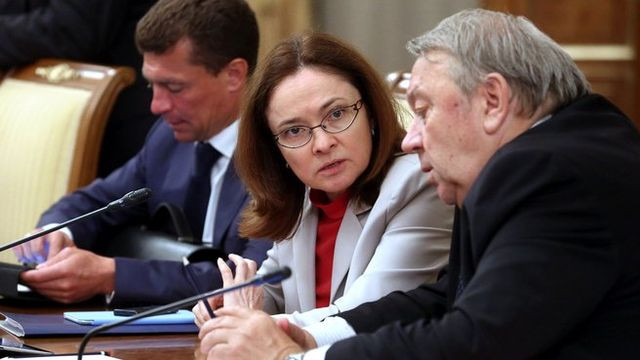The Russian central bank has sharply increased its key interest rate by 200 basis points to 18%, marking the highest level in more than two years. This move, announced on Friday, is part of a broader effort to curb soaring inflation in an economy experiencing significant overheating. The central bank also indicated that further tightening is likely until inflation rates stabilize.
The rate hike comes as the central bank revises its inflation forecast for 2024 to 6.5-7.0%, well above its target of 4%. It projects that annual price growth will decline to 4.0-4.5% in 2025. This latest adjustment follows a period of heightened inflation, with the annual rate climbing to 9.0% as of July 22, up from 8.6% in June.
In a statement, the bank emphasized the need for further monetary policy tightening to bring inflation under control. "For inflation to begin decreasing again, monetary policy needs to be tightened further," the statement read. The next rate-setting meeting is scheduled for September 13.
Central Bank Governor Elvira Nabiullina highlighted the consensus among board members regarding the necessity of the rate hike, with some advocating for even more significant increases. She dismissed suggestions from certain Russian elites, such as Rosneft CEO Igor Sechin, who proposed taking cues from China's recent easing measures. Nabiullina stressed the differences between the Russian and Chinese economies, noting that China is currently dealing with near-zero inflation and aims to prevent deflation, while Russia's goal is to reduce high inflation.
The decision to raise rates comes amid significant economic challenges. President Vladimir Putin has indicated that Russia's economy grew by over 5% in the first half of this year, driven by increased spending on defense and security. This surge in public expenditure, combined with severe labor shortages across various sectors, has fueled wage growth and contributed to the inflationary spiral.
Russia's federal budget has surged by nearly 50% over the past three years, from 24.8 trillion rubles ($289 billion) in 2021 to a projected 36.6 trillion rubles ($427 billion) this year. The central bank has raised rates six times in just over a year, with the last increase in December 2022 from 15% to 16%.
Despite these measures, inflation has remained stubbornly high, exacerbated by the economic impact of the ongoing conflict in Ukraine. The Kremlin, which continues to refer to the conflict as a "special military operation," has expressed concern over the high inflation levels and assured that measures are being implemented to address the issue.
The central bank's efforts to combat inflation have also faced criticism. The recent decision to issue $10 UberEats vouchers to staff and partners as a token of appreciation for their efforts during the outage was met with backlash. Some felt the gesture was insufficient given the scale of the disruption and the financial losses incurred by major U.S. companies, estimated at $5.4 billion by insurance firm Parametrix.
Nabiullina acknowledged the complexity of the situation, pointing out that while the immediate goal is to curb inflation, the long-term objective is to achieve sustainable economic growth. The central bank raised its GDP growth forecast for 2024 to 3.5%-4.0%, up from 2.5%-3.5%.






